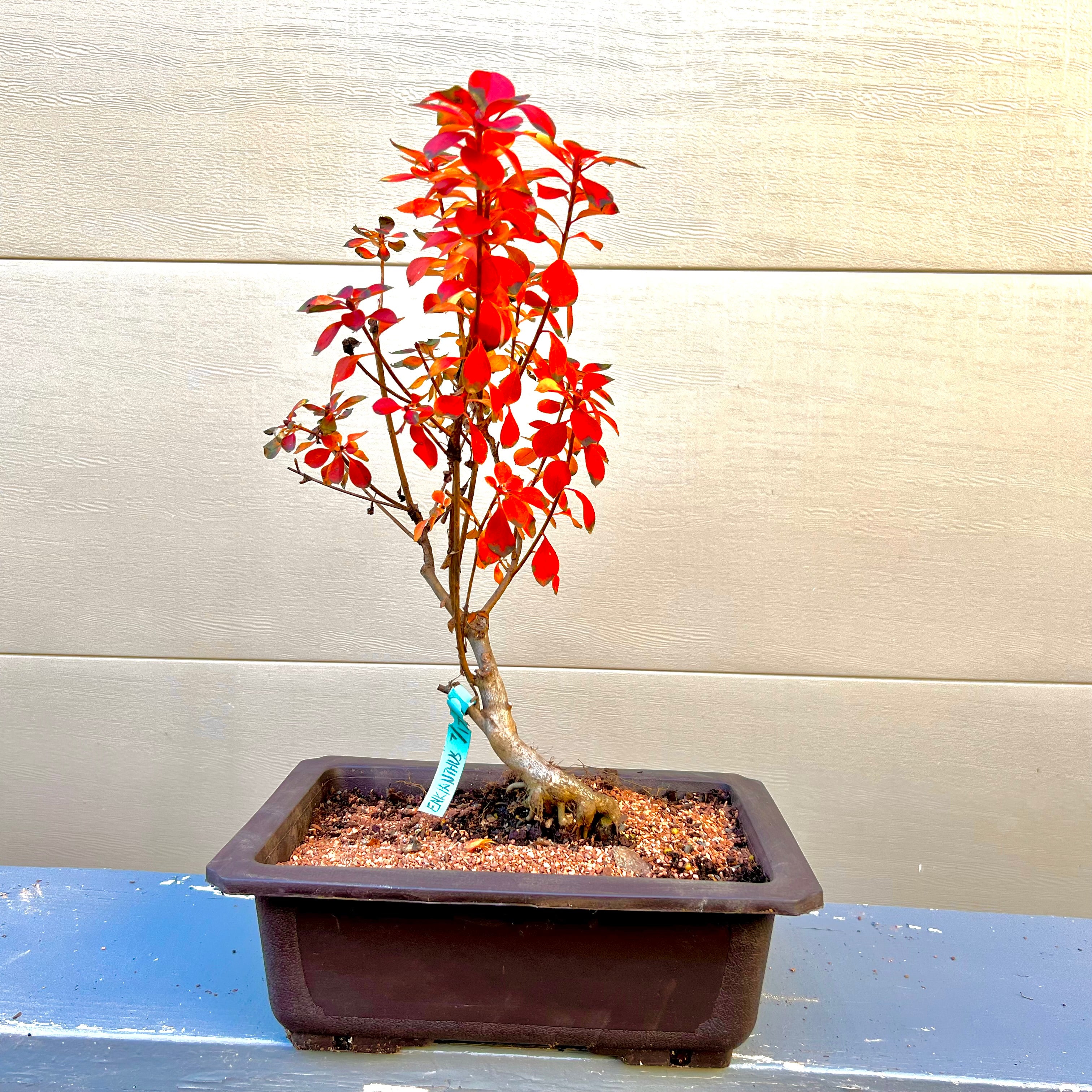Introduction
The Enkianthus Bonsai Tree is a stunning plant. It is loved by bonsai enthusiasts. This tree has beautiful flowers. They make any space look lovely.
Origin and Characteristics
The Enkianthus tree comes from Asia. It is mainly found in Japan and China. This tree is known for its bright red and orange leaves. They appear in autumn. The flowers are usually bell-shaped. They bloom in spring. The flowers are either white, pink, or red.
Why Choose Enkianthus for Bonsai?
The Enkianthus tree is perfect for bonsai. It is easy to shape and trim. The tree grows slowly. This makes it ideal for bonsai. The flowers and leaves add beauty. They make the tree stand out.

Credit: mr-artificialflower.en.made-in-china.com
How to Grow Enkianthus Bonsai
Choosing The Right Soil
Enkianthus bonsai needs good soil. The soil should drain well. Use a mix of akadama, pumice, and lava rock. This mix works best.
Planting The Tree
Start with a young Enkianthus tree. Plant it in a small pot. Make sure the pot has drainage holes. Place the tree in the center of the pot. Add soil around the roots. Press the soil down gently.
Watering
Water the bonsai regularly. The soil should be moist but not soggy. Over-watering can harm the tree. Under-watering can also be bad. Check the soil daily. Water when it feels dry.
Light Requirements
Enkianthus bonsai needs sunlight. Place the tree in a spot with good light. It should get at least 4 hours of sunlight daily. Too much direct sun can burn the leaves. Morning sun is best.
Temperature And Humidity
This tree likes cool temperatures. It grows well in mild climates. High humidity is also good. Mist the leaves if the air is dry. This helps the tree stay healthy.
Caring for Your Enkianthus Bonsai
Pruning And Shaping
Prune the tree to shape it. Use sharp bonsai scissors. Cut back long branches. This helps the tree grow well. Remove dead leaves and branches. This keeps the tree healthy.
Fertilizing
Feed the bonsai with fertilizer. Use a balanced mix. Fertilize once a month during the growing season. Do not fertilize in winter. The tree rests during this time.
Repotting
Repot the bonsai every 2-3 years. Do this in early spring. Choose a slightly bigger pot. Trim the roots before repotting. This helps the tree grow better.
Common Problems and Solutions
| Problem | Solution |
|---|---|
| Yellow Leaves | Check watering. Reduce if too much. Increase if too little. |
| Brown Leaf Tips | Check humidity. Mist leaves. Increase humidity. |
| Slow Growth | Check light. Move to brighter spot. Ensure enough sun. |
| Pests | Check leaves for bugs. Use insecticidal soap. Spray affected areas. |

Credit: bellabonsai.com
Enkianthus Bonsai Display Ideas
Displaying your Enkianthus bonsai can be fun. Here are some ideas:
- Place it on a shelf with other plants.
- Use a small stand to elevate the tree.
- Put it near a window for natural light.
- Create a mini garden with other bonsai trees.
- Use decorative pots to add style.
Conclusion
The Enkianthus bonsai tree is a beautiful choice. It is easy to care for. The flowers and leaves are stunning. With proper care, it will thrive. Enjoy the beauty of your Enkianthus bonsai!

